Martin Luther
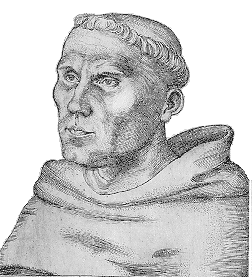
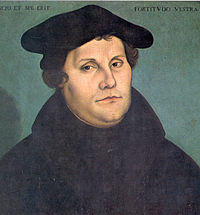
If it were art to overcome heresy with fire, the executioners would be the most learned doctors on earth.
Martin Luther, To the Christian Nobility of the German States (1520)
I attended school in Germany from Kindergarten through 7th grade. The majority of the German population professes either Catholicism or Protestantism: 30% of Germans are Catholic, while 29.9% are Protestant. This even division is reflected in German religious education, which is part of the public school curriculum. Most students elect to take classes in either Catholicism or Protestantism, with teachers trained by the Catholic and Protestant churches, respectively. The courses cover both the histories and theologies of the religions. An increasing number of students enroll in a secular ethics class instead of religion.
I would advise no one to send his child where the Holy Scriptures are not supreme. Every institution that does not unceasingly pursue the study of God's word becomes corrupt. Because of this we can see what kind of people they become in the universities and what they are like now. Nobody is to blame for this except the pope, the bishops, and the prelates, who are all charged with training young people. The universities only ought to turn out men who are experts in the Holy Scriptures, men who can become bishops and priests, and stand in the front line against heretics, the devil, and all the world. But where do you find that? I greatly fear that the universities, unless they teach the Holy Scriptures diligently and impress them on the young students, are wide gates to hell.
Martin Luther, To the Christian Nobility of the German States (1520)
My parents are Episcopalian, a religion whose adherents jokingly refer to it as "Catholic Lite." Clearly, neither Catholicism nor Protestantism would be a just–right fit for my sister and myself. In the spirit of compromise, we took both classes, switching off every few years.
I remember very little from those classes. One of the few lessons that has hung around my brain is the story of Martin Luther and his 95 theses.
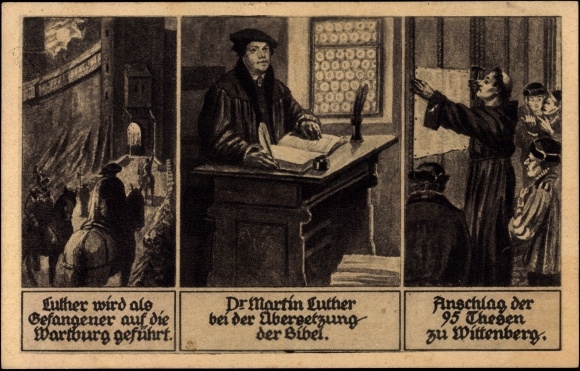
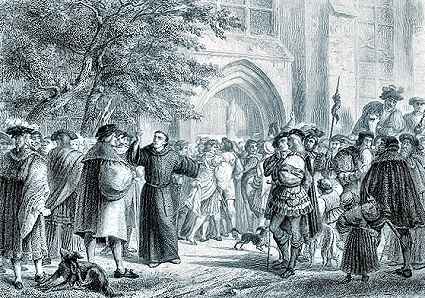
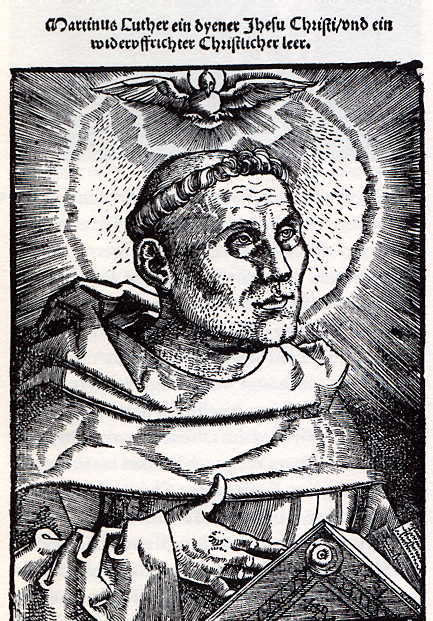
As the (true) story goes, Martin Luther, a German monk and theologian, denied the efficacy of the Catholic Church's practice of indulgence, whereby you could buy forgiveness for sins from traveling salesmen.1 Luther's most famous critique of indulgence specifically, and the Catholic Church in general, is his 95 theses, first made public in 1517. Rather than simply print and distribute the theses, Luther took the performative step of nailing them to the door of the Schlosskirches in Wittenberg, Germany.
For his pains, Luther was excommunicated and left without the support or the protection of the church he loved enough to want to make perfect. He did enjoy sainthood eventually, in the eponymous Lutheran church.
The Lutheran–Catholic divide in Germany provides handy way to elide non–Christian diversity. Religion, for obvious reasons, can be a sensitive and difficult subject for Germans. Focusing on a Christian hero who is nonetheless a rebel against Christianity allows them to have their cake and eat it too: diversity without discomfort. I wonder if I don't too avoid discomfort around questions of diversity by simply choosing silence. How much easier it is to pretend that we're all the slight variations on the same flavor of religion, ethnicity, and nationality.
But we're not. And our experiences are not interchangeable like my not–quite–right religion classes. It's time to act that way.
- I suppose this was a precursor of the idea that you could buy knowledge from encyclopedia salesmen.↑